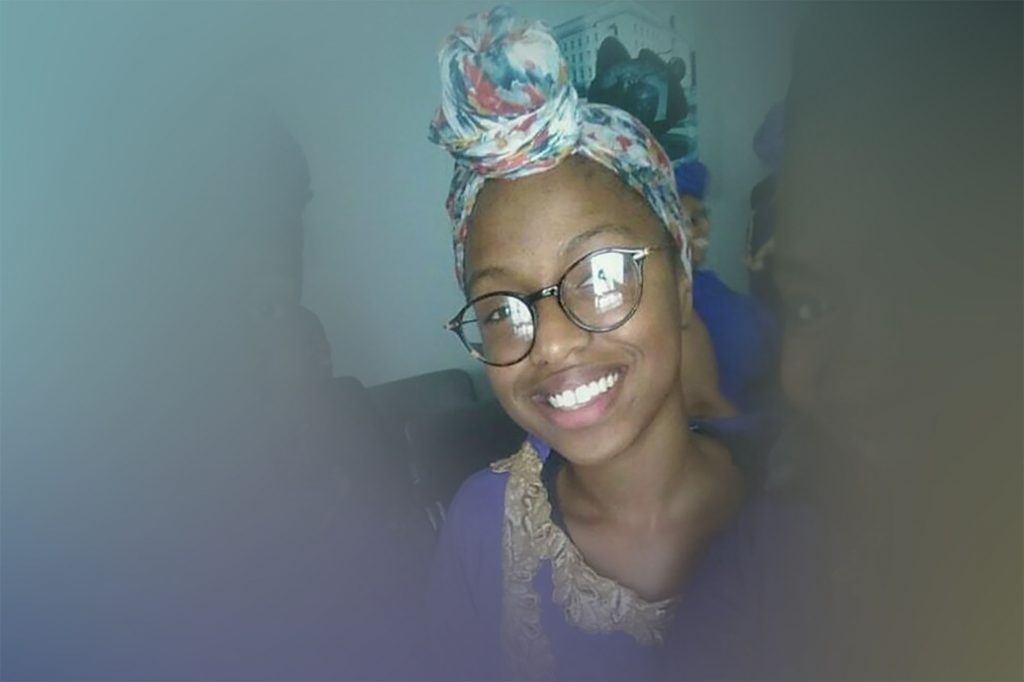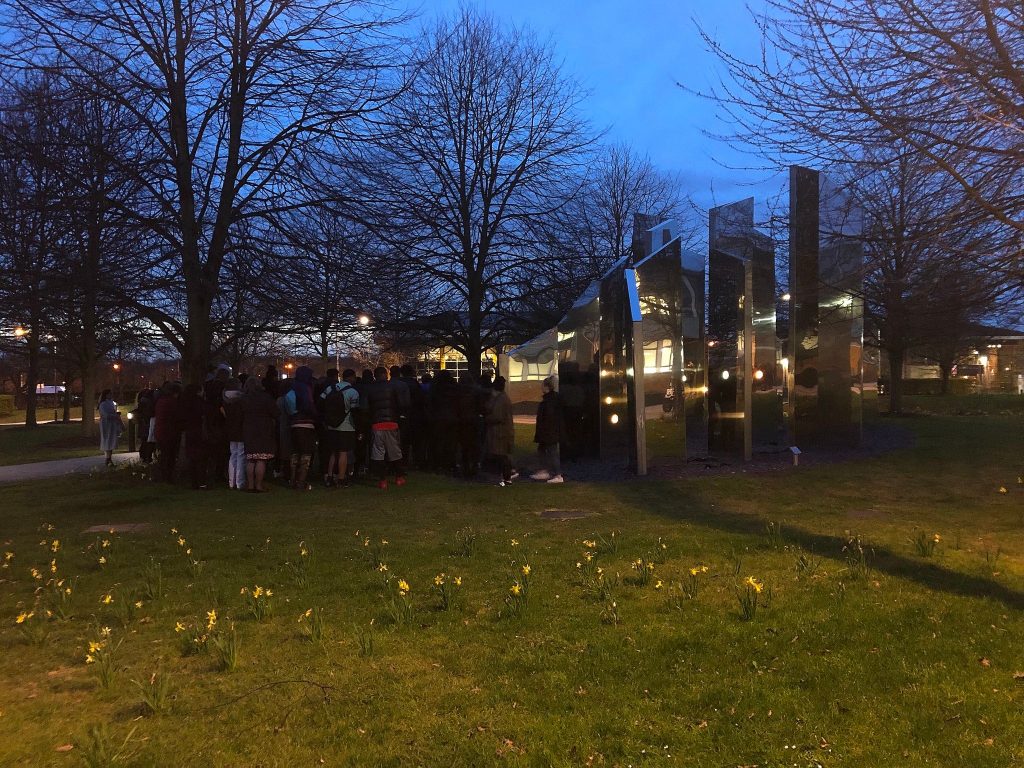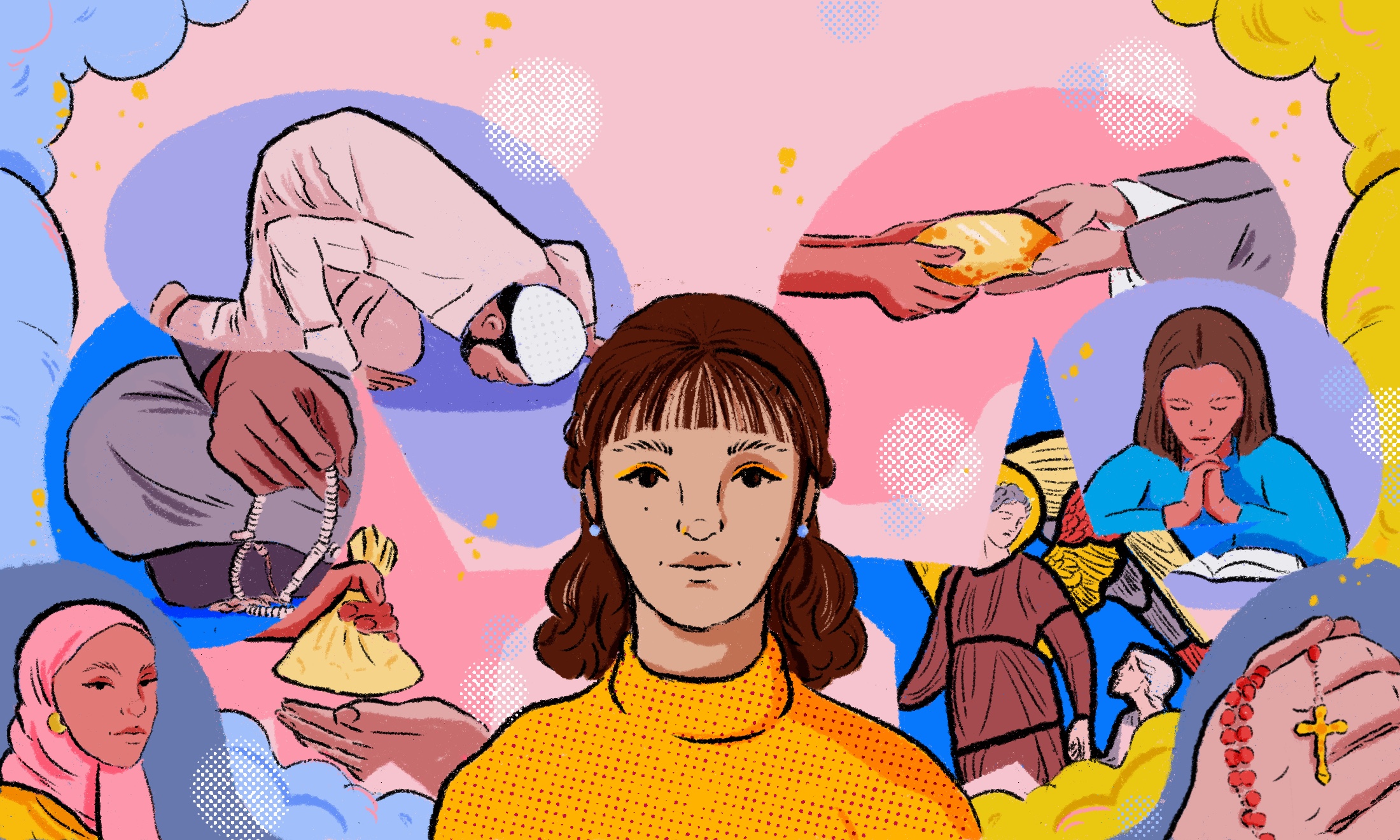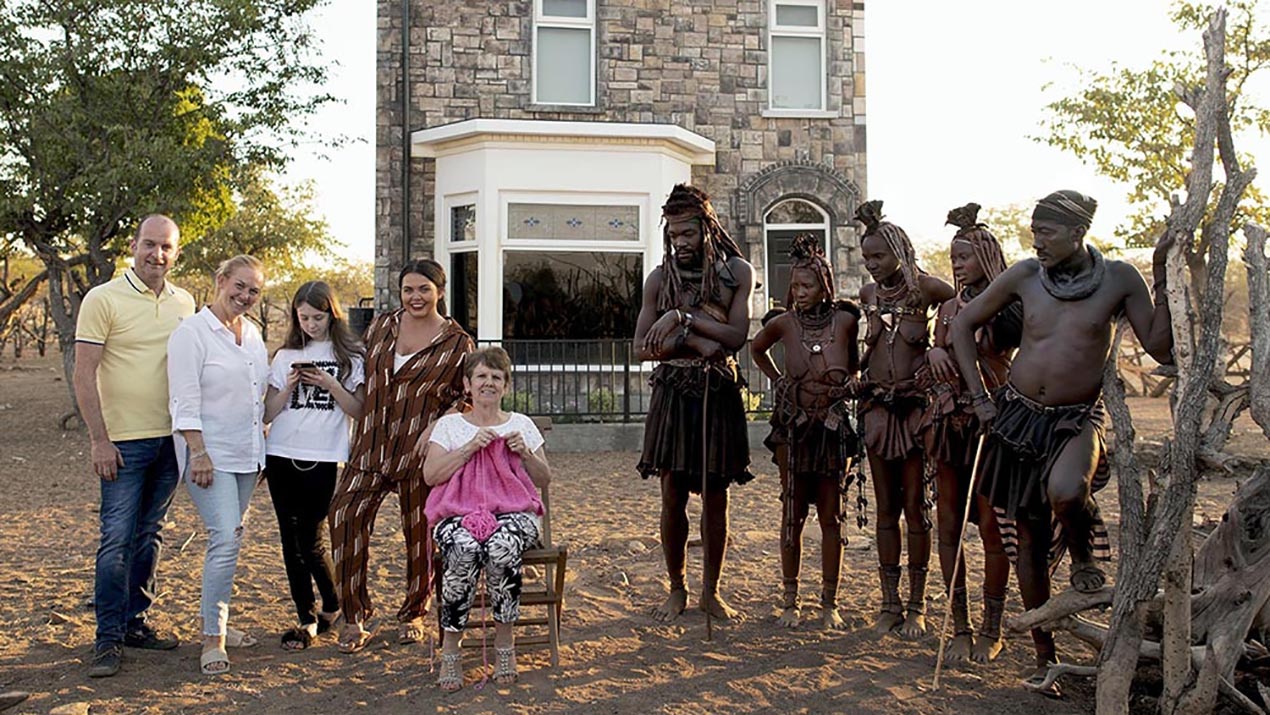
Joy Morgan can be laid to rest, but more needs to be uncovered about her murder
The initial failings of the press, the church, the university and even potentially the police force, shouldn’t be dismissed in the case of Joy Morgan.
Charlie Brinkhurst Cuff
11 Oct 2019
In mid-August, Joy Morgan’s brother, Earl Morgan, wanted to launch a search party to look for his sister. Posting on Facebook, he wrote that he was going to look for her in a few days: “If anyone wants to help, let me know ASAP”. Just two weeks before, the man who had been convicted of her murder, 40-year-old Shohfah-El Israel (Ajibola Shogbamimu), was dealt a stern admonishment by the sentencing judge, condemning his “cruel and cowardly silence about Joy Morgan’s final resting place”.
Outside of the court, Earl’s mother, Carol Morgan had pleaded with Shohfah-El Israel. “Give me my baby back, he knows where she is,” she said. “If he loved her give her back up to us so I can bury my daughter. If I get to see her before I die I’ll be very grateful.” Yesterday, it was finally reported that Joy’s body had been found – but not because of benevolence on the part of Shohfah-El Israel: officers were called by a member of the public to the location in Stevenage, Hertfordshire, early on Saturday. A post-mortem could not establish the cause of death and further tests will be carried out.
Joy’s story has had a profound impact on black Brits. Initial media interest in the case of Joy, a 20-year-old Hertfordshire University midwifery student who was last seen 27 December after attending a party at her church, had been scant until Black Twitter started making noise. Unlike the cases of Daniel Morgan and Libby Squire – university students who also were reported missing in the first few months of 2019 – Joy, as a black woman, fell into the realm of #findourgirls, the US campaign created after it was reported that there were an astonishing number of black and Latinx girls missing in Washington D.C and little public knowledge of them.
As gal-dem reported in February, a few weeks after Joy had been reported missing, the BBC News website had run just five stories in total on her, compared to over 20 on Libby Squires, a student who disappeared after a night out in Hull and was later found dead in the Humber estuary. The Guardian published just two pieces on Joy online, compared to at least ten on Libby. Publications such as The Times and The Telegraph hadn’t covered Joy’s case at all (though both have now covered her case at least twice).
There are of course numerous reasons as to why some cases get more attention than others, but Joy’s story, set up as it was against the backdrop of other missing cases and the decidedly questionable black nationalist church she was a part of, should have been easy pickings for any news journalist with an investigative bent. But as Tobi Oredein wrote in her Black Ballad newsletter in March, “Both black men and women are robbed of their vulnerability and their innocence as soon as they are born, so when we go missing, it is of no interest to those who are the power players in British journalism. We aren’t the right type of black victim for this country’s press.”
This isn’t hyperbole. There are layers of evidence that prove time and time again that black women are not treated with respect in the press – the latest, high-profile case being Meghan Markle’s impending court case against the Mail on Sunday for their relentless trashing of her character and publication of a personal letter. It was a black journalist at BBC Newsbeat, Cherry Wilson (alongside her colleagues), who finally gave Joy’s story the weight it deserved – months after she was first reported missing. They covered her family’s search for justice in a documentary and a long feature which traced her upbringing and how she came to be a part of the church.
Police inquiry
The case around Joy Morgan’s murder is still not closed, even though her murderer is behind bars. Over the course of the investigation, the police force was criticised for their lack of communication with Joy’s family around the time she went missing. Now, however, they seem to be doing their jobs and Justine Jenkins, the senior investigating police officer in the case, told gal-dem that the police have “a great relationship” with the family. Despite the fact that it wasn’t the police who eventually found Joy’s body, Justine thinks that the police investigation was done “really well”.
“Whilst yes, it would have been lovely to have found Joy’s body earlier, unfortunately, we do have to work with the resources and information that you’ve got. You can’t search the whole of a massive town. It’s just not feasible. It’s unfortunate that it was a member of the public but that is quite often the way,” she said.
On the topic of communication, Justine added that: “It may seem like that [there is a lack of communication] but Carol [Morgan] did have family liaison officers allocated to her straight away and they were providing her with the updates as soon as we could… But we appreciate that it’s a really difficult time for them. And it may be that they feel like they aren’t getting all of the information.”
She confirmed that the post-mortem conducted on Tuesday wasn’t able to ascertain the cause of death, but stated that further tests were being carried out as well as a “full forensic exam”. She said: “There are some items that will be sent off to our forensic providers to see if we can identify DNA or anything else. And then we’ll have to assess whether that will have any effect as to what’s happened.”
Even so, Justine said that the discovery of Joy’s body is “highly unlikely to affect our murder conviction”. This is because of where Joy’s body was located, and the evidence they already had uncovered, which pointed towards Stevenage.
‘She’s just like her name, Joy’

Joy in school uniform / Photograph courtesy of a friend
It’s important to remember, while we cover the heartbreaking news of her body being found, that Joy was a real person who was loved by a lot of people. Earlier this year, her older sister Dionne Morgan described her to gal-dem as a beautiful person, “inside and out”. She added: “She’d do anything for anyone. She’s always there. She loves her nieces and nephew, a lot. That’s my children. She’s always there for them. Always has been, for them. And she’s happy. She’s just like her name, Joy.”
Dionne described her mum as “distraught”. It’s worth noting that, as outlined in the BBC Newsbeat piece, her family have campaigned hard to get information about Joy since they were aware she was missing – despite the fact they were somewhat estranged, certainly in part because of the influence of her church. Carol told the BBC that she “will be forever sorry” for not realising anything was wrong with Joy until she received a call from an estate agent informing her that Joy hadn’t paid her rent and that her housemates hadn’t seen her since Christmas. Carol then reported Joy as missing on 7 February, six weeks after she was last seen.
A friend of Joy’s from secondary school, Natasha*, who spoke to gal-dem on the condition of anonymity, said that Joy’s mother was “very, very overprotective of her” while they were growing up. She went on: “If Joy was at my house she’d want to speak to her and find out where she was and speak to my parents too.” Like everyone we spoke to, the descriptors Natasha reached for paint a picture of a well-rounded person. “Joy was funny, she was friendly, she’d talk to anyone, she’d make friends with anyone. She was very, very serious about her education. She was in the top set for everything and all the teachers liked her. She was just a normal girl.”
While they hadn’t spoken since September 2017, they were close friends in school and especially at sixth form. They both attended St John Bosco College, a coeducational Roman Catholic secondary school and sixth form in Battersea and spent a lot of time going to the park, where they would have picnics, and to each other’s houses. Natasha said they would eat out and have birthday meals – things she deemed “normal teenager stuff”.
The Black Hebrew Israelites

Photography via Princess Joy / Facebook
It’s clear that as well as being failed by the press, Joy was also failed by another very important part of her life: the church she joined in January 2016, Israel United in Christ (IUIC). Joy was last seen at a Hanukkah IUIC service on the 26 December. There is a video of her dancing amongst the congregation with a smile on her face. On a Facebook page which appears to belong to her, she was sharing public posts relating to the church until 25 December. Shohfah-El Israel was also part of the church, which is where they met.
“There’s no way that she just disappeared into dust,” Carol Morgan told Channel 4 News, not long after she reported her daughter missing. “These people that are so family-oriented, a close-knit church.” Carol believed Joy was attracted to the church after she received a diagnosis of MS and her stepfather died.
The IUIC is a controversial, black nationalist organisation made up of Black Hebrew Israelites. It was founded in 2003 by Bishop Nathanyel Ben Israel (previously known as Nathaniel Ray). Black nationalists are defined as a “hate group” by the Southern Poverty Law Centre, who state on their website that “the black nationalist movement is a reaction to centuries of institutionalized white supremacy in America. Black nationalists believe the answer to white racism is to form separate institutions — or even a separate nation — for black people.” They specifically highlight the IUIC, who they say led an 800-person march in Tennessee in August 2018.
In the UK, you may have seen Hebrew Israelites in areas such as Peckham and Brixton, some preaching that the white man is the devil. Not all Israelite churches take such a hard line. Chokmah Israel, an American-Guatemalan former member of IUIC NYC, who was kicked out of the IUIC in autumn 2018, told gal-dem that the “Israelite community is an alternate form of mainstream Christianity.”
“It’s about the uplifting of our people, returning to our heritage,” he added. “The same people that you see on the street – they’re not keeping the commandments. They’re just angry, upset people who want to rant at others. But [there are] those of us who are sincere.” Chokmah was among those who led the Find Joy Morgan campaign on social media, searching for clues following the revelation that she was missing.
In March, the IUIC’s website suggested that there were at least 49 chapters of the organisation, including in London and the Midlands – as well as Jamaica, Barbados, Canada, South America, Uganda and Sierra Leone and their headquarters are reported to be in Mount Vernon. The total number of the congregation is reportedly in their thousands – one estimate is 5,000. A crowdfunder for the IUIC, promoted on Facebook as recently as December 2018, raised £56,375, with 1,300 donations.
Caleb Emmanuel Israel is a former member of IUIC London who used to attend the church with Joy. “When I met her she was the most bubbliest girl there,” he said. Although the pair weren’t close, it seemed to Caleb that Joy was god-fearing. “She was extremely outgoing. She did everything, from [what I could see] that the bible expected of her. From what I got to know she didn’t really talk much with her family.”
He joined the church in 2015 and said there were only around 20 members in the London chapter at that time (it launched in 2012), but that in 2016 their following grew exponentially and he estimated that in March 2019 there was between 80 to 100 members. He also alleges that he was kicked out in 2017 after beginning a sexual relationship with another congregant and that the church gave him two options: marry the woman or leave. He chose the latter. Once someone leaves the church, he explained, other members are obligated to stop contact.
“When I was there a lot I always felt they were trying to separate me and my family,” Caleb explained. “Obviously I’m more strong-minded [than that].” He commented on the “passive-aggressive behaviour” within the church making it hard to prove the nature of their manipulation. “It’s always said in the context of them doing something bad to you or keeping the laws of God. We can’t eat pork or shrimp, so if family members purposefully made those foods for you they would say, ‘cut them off for that’.”
When gal-dem reached out to IUIC for comment, not long after Joy was reported missing, Officer Shapal, who worked for the London branch of the church, said there was “no comment at this time” and that “we’re not speaking to the media”. When gal-dem suggested connecting the church with Joy’s family, Shapal said that would be fine and that Joy’s sister, Dionne Morgan, “can get in contact with me”.
Since then, the church, who were criticised for not publicly supporting the campaign to find Joy when she initially went missing, posted an advert for a £5000 reward for any information on Joy’s missing person status. They also released a statement regarding Joy’s murder in August, after the conviction of Shohfah-El Israel. They claimed to have attempted to contact Joy on numerous occasions and, when it was established she was missing, led “extensive searches”.They said that rather than thinking any harm had come to her, they thought that she wanted “time away” from the church. They also said that “due to the lies spread on social media by ignorant and vile buffoons, our children, women and men are placed in danger.”
But the impact that the church had on Joy’s life was profound long before one of their member’s decision to murder her in cold blood.
Things started to change between Joy and Natasha when she began watching videos relating to the IUIC on YouTube in sixth form. “She’d change [her clothes based] off of what they were saying on YouTube,” Natasha recalled. One of IUIC’s rules is that women can’t wear trousers, and Joy began wearing only skirts. After they left school, Natasha said “[Joy] kind of just fell off. I don’t know who else she was talking to. She kind of just distanced herself from everyone.”
“I haven’t spoken to Joy in two years. It was normal for us not to hear from her for a long time,” she said, and mentioned that Joy often changed phone numbers. The last time they spoke was via FaceTime.
Dionne also mentioned a similar pattern of distancing behaviour which she related to the church. “She’s close to all of her family. When she joined the Israelite Church, she became kind of distant with us, but we still spoke to her. Especially for the last year, she was coming back to being Joy, I’d say,” she said. She believed her sister joined the church three or four years ago and was surprised at her choice. “They say they have faith, but you border onto the supremacy… I’ve seen in documentaries that they’re very disrespectful and how they treat people who are not of their race,” she said. “Because my dad is a white man, I can’t join them.” Dionne is a born again Christian herself but said that her family are not religious.
Hannah D Spivey has been outspoken in her criticism of the Hebrew Israelites, who she deems a “cult” and has written a memoir named Why I Abandoned the Hebrew Israelite Religion. She left the church when she turned 31. She comments on Joy: “She was so young and you know, with her being in the midwifery thing, she was definitely ripe for the picking because they don’t like you to go to hospitals… I am familiar with them [IUIC]. I actually allude to them [in my book] as the purple and gold camp.”
Hannah said that among other things, she was “castigated and nearly outcast” because of her period. They treated her as though she had a “communicable disease because I was bleeding”. While she pointed out that each Hebrew camp has its own teachings, and that some camps “believe that white people can be spared”, while others, for instance, “believe in polygamy”, Hannah claimed that women, in general, are badly mistreated within the Israelite community.
“There have been women who lost their lives in that community,” she said. “A lot of times they keep things under wraps because they already have gotten a reputation for being loud, abrasive and abusive and just outright disrespectful, especially to outsiders. Especially what happened with her [Joy] within that particular camp or cult, they’ll say, ‘Well, it’s not all Hebrew Israelites.’ Well, we know it’s not all of you, but there’s enough of you who abuse your women, who abuse children.”
University woes

A vigil for Joy Morgan at the University of Hertfordshire / via @UniofHerts Twitter
It was also surprising to learn that Joy was absent from classes for two weeks without anyone at the college raising an alarm. A spokesperson for the university said that if a student is absent for more than two weeks, this is flagged to their personal tutor to take further action, and an email is sent from their school of study (in Joy’s case, midwifery). The spokesperson told gal-dem: “Joy wasn’t absent from teaching long enough to trigger this protocol before she was reported missing by a family member… Due to self-directed study time and an inter-semester week at University, Joy was not due back to course teaching after Christmas until the 24 January.”
The time period they claim is the cut-off to raise any alarm is two weeks – which is exactly the time period that passed between Joy’s January university start date and the day she was reported missing by her mother on 7 February. The university said it was unable to send Joy’s timetable because they do not give out details of personal timetables publicly. They also would not confirm whether the protocol was about to be triggered before they learned she had been reported missing.
At the time, Tobi Amon, who was the events manager of Hertfordshire’s African Caribbean Society when Joy went missing, told gal-dem that she didn’t think the university did enough to get the message out that Joy was missing. Despite the University of Hertfordshire being one of only 10 institutions to have been successful in achieving the bronze award for the pilot of the Race Equality Charter mark, Tobi said that the university “is not totally inclusive when it comes to people of ethnic backgrounds”, and claimed that in the past it had been difficult for their society to get funds. She held a vigil for Joy on the 13 March at the university’s de Havilland campus.
There is no evidence that the university has posted on social media (Twitter and Facebook) about Joy since April.
Remembering Joy
There is a lot still to uncover but the initial failings of the press, the church, the university and even potentially the police force, shouldn’t be dismissed. At this time, our thoughts are with Joy’s family and friends. As Carol Morgan said of her daughter, after learning her body has been found, “Joy was so beautiful and completely lived up to her name – she brought joy to all our lives. Our family has been living a nightmare and we miss her so, so much. Joy was studying to be a midwife and would have graduated by now. I know she would have been amazing as a midwife. I was so proud of her and I always will be. She was our star.”
*Name has been changed
If you have any information you would like to share with gal-dem on IUIC or would like to share memories of Joy, please contact charlie@gal-dem.com

Britain’s policing was built on racism. Abolition is unavoidable

How Pakistan’s Khwaja Sira and transgender communities are fearing and fighting for their futures

Their anti-rape performance went viral globally. Now what?






